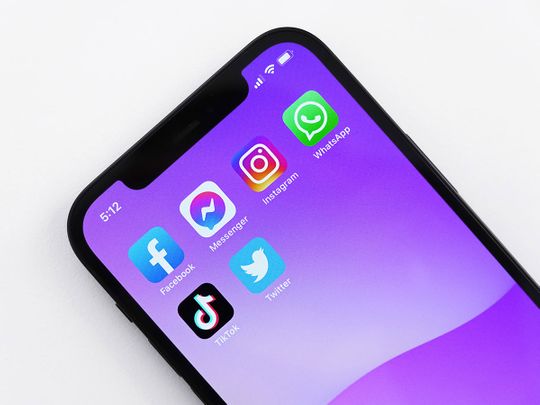
About 3 billion people – that’s around 40 per cent of the world’s population – use social media.
Click start to play today’s Word Search, which gives you the opportunity to spot social media networks, from Instagram to Tik Tok.
The global number of social media users may come as no surprise to most of us. It was part of the 2017 Global Digital Statshot study by US-based tech firm Hootsuite and Spain-based creative agency We Are Social. We spend an average of two hours every day sharing, liking, tweeting and updating posts on social platforms, according to UK-based market research company GWI.
But since it’s such a big part of our lives, is social media causing us to sacrifice our mental health and wellbeing, along with our time?
In terms of stress, the answer could be a both yes and no. In 2015, US-based Pew Research Centre surveyed 1,800 people and found that Twitter was a “significant contributor” of stress, because it increased people’s awareness of others’ stress. The study also found that women reported being more frazzled than men. However, Twitter was also used as a coping mechanism by women – the more they were on Twitter, the less stressed they eventually became. It wasn’t the same effect for men, though, who apparently had a more distant relationship with social media.
Our moods are also impacted by the time we spend online. In a June 2014 study published in the journal Computers in Human Behaviour, researchers found that people reported experiencing lower moods after using Facebook for 20 minutes, compared to those who just browsed online. The researchers came to the conclusion that people likely felt that way because they saw it as a waste of time.
In another March 2014 study, published in the online journal PLOS One, researchers from the US-based University of California in San Diego analysed over a billion anonymous status updates from over 100 million Facebook updates. They used a software program called Linguistic Inquiry Word Count to assess the emotional content of each post, and found that good or bad moods were contagious on social media.
Bad weather increased the number of negative posts by one per cent, for instance. And every happy post inspired 1.75 more happy posts.
One area where social media had a very obvious impact was in relationships. Even the mere presence of a smartphone can interfere with our interactions, according to a July 2012 study published in the Journal of Social and Personal Relationships.
Researchers asked 34 pairs of strangers to have a 10-minute conversation about an interesting event that happened to them recently. While half the pairs had a smartphone on their table, the other half had notebooks. Those with a phone in eyeshot were less positive when recalling their conversation later, and reported having less meaningful conversations and feeling less emotionally connected to their partner than those who had a notebook on the table instead.
It all goes to show that our online interactions have a bigger impact on our lives than we often give it credit. Researchers are just beginning to scratch the surface of the wide and varied impact of social media – which is still a recent invention – on our lives.
How much time do you spend on social media every day? Play today’s Word Search and tell us at games@gulfnews.com.






